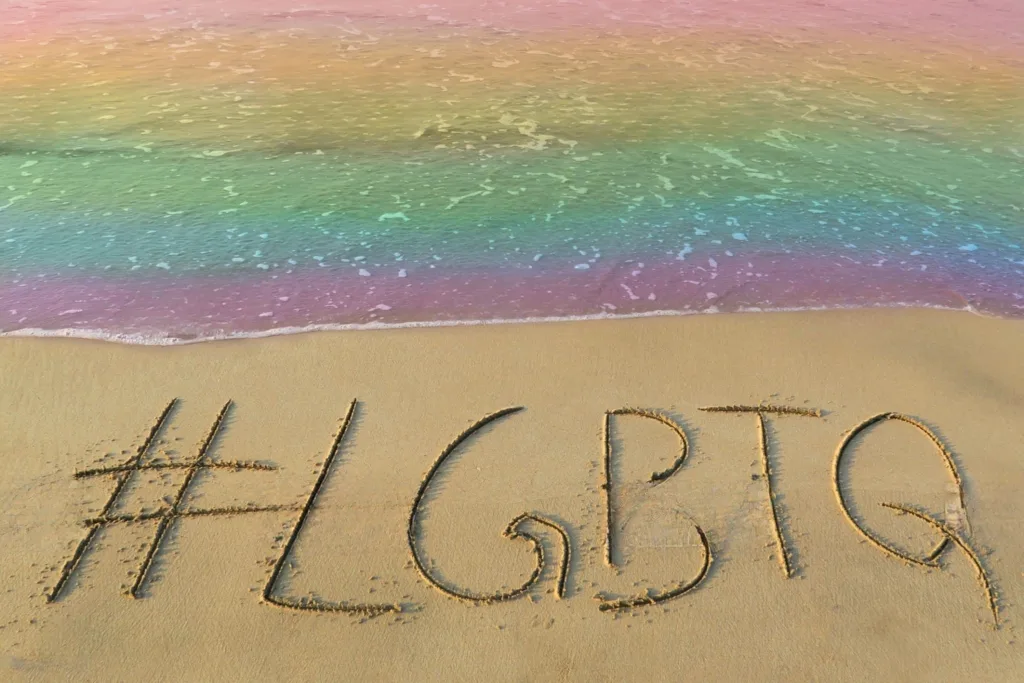Social workers have played a critical role in promoting LGBTQ+ rights and supporting individuals and communities in this area. Despite progress made in recent years, these individuals still face discrimination, harassment, and inequality in many areas of their lives. Social workers are working to address these challenges and promote greater acceptance and equality for these individuals. In this article, we will explore how social workers are advancing their rights and share some case studies of their work.
Table of Contents
What is LGBTQ+ ?
LGBTQ+ is an acronym that stands for Lesbian, Gay, Bisexual, Transgender, Queer (or Questioning), and the “+” symbolizes other diverse sexual orientations and gender identities beyond the core terms. This community represents individuals whose sexual orientations or gender identities differ from the heterosexual and cisgender norms.
Case studies on LGBTQ+
Case Study 1: The Trevor Project
The Trevor Project is a non-profit organization that provides crisis intervention and suicide prevention services to such youth. The organization was founded in 1998 by James Lecesne, Peggy Rajski, and Randy Stone in response to the suicide of a young gay man named Trevor. Since then, The Trevor Project has grown to become the leading organization providing crisis intervention and suicide prevention services to such youth in the United States.
Social workers are a critical part of The Trevor Project’s work. They provide crisis intervention and support services to youth in need, as well as outreach and education to communities and organizations. The Trevor Project’s social workers also advocate for rights and work to address the social, economic, and political factors that contribute to the challenges facing LGBTQ+ youth.

Case Study 2: The Human Rights Campaign
The Human Rights Campaign (HRC) is the largest LGBTQ+ advocacy organization in the United States. The organization was founded in 1980 and has since become a leading voice in the fight for their equality. HRC’s work includes lobbying for legislative change, conducting research, and providing support and resources to LGBTQ+ individuals and communities.
Social workers are a key part of HRC’s work. They provide support and counseling to LGBTQ+ individuals and their families, as well as outreach and education to communities and organizations. HRC’s social workers also advocate for LGBTQ+ rights and work to address the systemic barriers that prevent LGBTQ+ individuals from achieving equality.
Case Study 3: The Los Angeles LGBT Center
The Los Angeles LGBT Center is a non-profit organization that provides a wide range of services and resources to LGBTQ+ individuals and communities in the Los Angeles area. The organization was founded in 1969 and has since grown to become the largest provider of LGBTQ+ services in the world.
Social workers are a critical part of the Los Angeles LGBT Center’s work. They provide a wide range of services, including counseling, case management, and support groups, to LGBTQ+ individuals and their families. The center’s social workers also provide outreach and education to communities and organizations and advocate for LGBTQ+ rights at the local, state, and national levels.
Social workers play a critical role in advancing LGBTQ+ rights and promoting greater acceptance and equality for LGBTQ+ individuals. Through their work with organizations like The Trevor Project, the Human Rights Campaign, and the Los Angeles LGBT Center, social workers are providing vital services and resources to LGBTQ+ individuals and communities. They are also advocating for legislative change, addressing systemic barriers, and working to create a more inclusive and equitable society for all.
How social workers are advancing LGBTQ+ rights in India ?
In India, social workers are working tirelessly to advance the rights of LGBTQ+ individuals and promote greater acceptance and equality for this community. Despite the fact that homosexuality was decriminalized in 2018, these individuals still face significant social stigma and discrimination in India. Here are some ways in which social workers are advancing LGBTQ+ rights in India:
- Advocacy and awareness-raising: Social workers in India are advocating for legislative change and promoting greater awareness of their issues. They are working with policymakers, lawmakers, and other stakeholders to advance legal protections for such individuals, and to promote greater understanding and acceptance of this community among the general public.
- Support and counseling: Social workers are providing critical support and counseling services to these individuals in India. Social workers are working to address the mental health challenges that many such individuals face as a result of discrimination and stigma, and are providing support to those who have experienced violence or abuse.
- Community building: Social workers are helping to build a stronger and more connected with these communities in India. They are organizing events and support groups, and are working to create safe spaces where these individuals can connect with one another and receive support and resources.
- Legal aid and representation: Social workers are providing legal aid and representation to such individuals who have experienced discrimination or violence.
- Research and advocacy: Social workers are conducting research and advocating for policies that promote greater equality and acceptance of these individuals. They are working to gather data on the experiences of such individuals in India, and are using this information to inform policy and advocacy efforts.
List of top 20 Non-Government Organisations (NGOs) working for LGBTQ rights in India.
Here under is the table with contact details and websites of 20 NGOs working for LGBTQ+ rights:
Note: The contact details may be subject to change, so it is always best to check the NGO’s website for the most up-to-date information.
